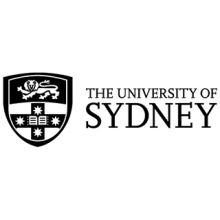Women are harder pressed than men to find time for the sort of work that advances their academic careers, but the differences are far less pronounced among academics without children.
A point-in-time analysis of academics’ activities has identified parenthood as a central factor in the gender inequities that emerged during the pandemic. At any given moment, academic mothers were one-third less likely than academic fathers to say they were conducting research, one-third more likely to be multitasking and over one-third less likely not to have been interrupted in the past hour.
But the group whose pandemic experience differed most from mothers was childless women, who reported doing research twice as frequently as mothers, and enjoying interruption-free interludes almost two and a half times as often.
The findings come from a unique week-long study of 130 academics in 14 mostly Western countries, conducted in mid-2020. Prompted at random by a phone app, the participants answered short questionnaires about what they were doing at that precise moment, six times a day during their waking hours.
Parents proved 57 per cent less likely than non-parents to be working on research at the survey times. But pandemic lockdowns disproportionately disrupted mothers, who were more than four times as likely as fathers to be caring for children and almost five times as likely to be caring for children while attempting other tasks.
“Covid-19 and lockdowns had differential impacts on parents, particularly mothers,” said lead author Roxanna Pebdani, of the University of Sydney’s School of Health Sciences. “Every week I hear of other parents of young children, particularly mothers, only now getting back to papers they started pre-pandemic.
“If 2020 was hard for you, that has an impact on your publications in 2021 and 2022, your grant funding in 2023 and 2024 and your promotion application in 2025. It’s got this lasting impact that we need to be paying close attention to in order to mediate it.”
Dr Pebdani said that in recent years, academia had made valuable strides in plugging the “leaky pipeline” that prevented women from reaching leadership positions. “But if we aren’t able to really understand how Covid impacted people, particularly mothers, we run the risk of going back to a time where women don’t get to make it to those higher levels – because they didn’t get grant funding in 2023 and 2024.”
The study was published in Higher Education Research & Development.
Register to continue
Why register?
- Registration is free and only takes a moment
- Once registered, you can read 3 articles a month
- Sign up for our newsletter
Subscribe
Or subscribe for unlimited access to:
- Unlimited access to news, views, insights & reviews
- Digital editions
- Digital access to THE’s university and college rankings analysis
Already registered or a current subscriber? Login










